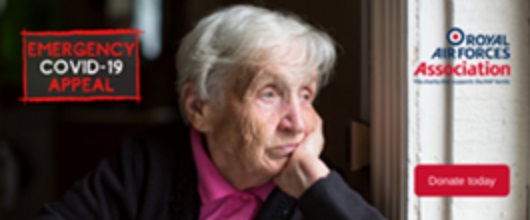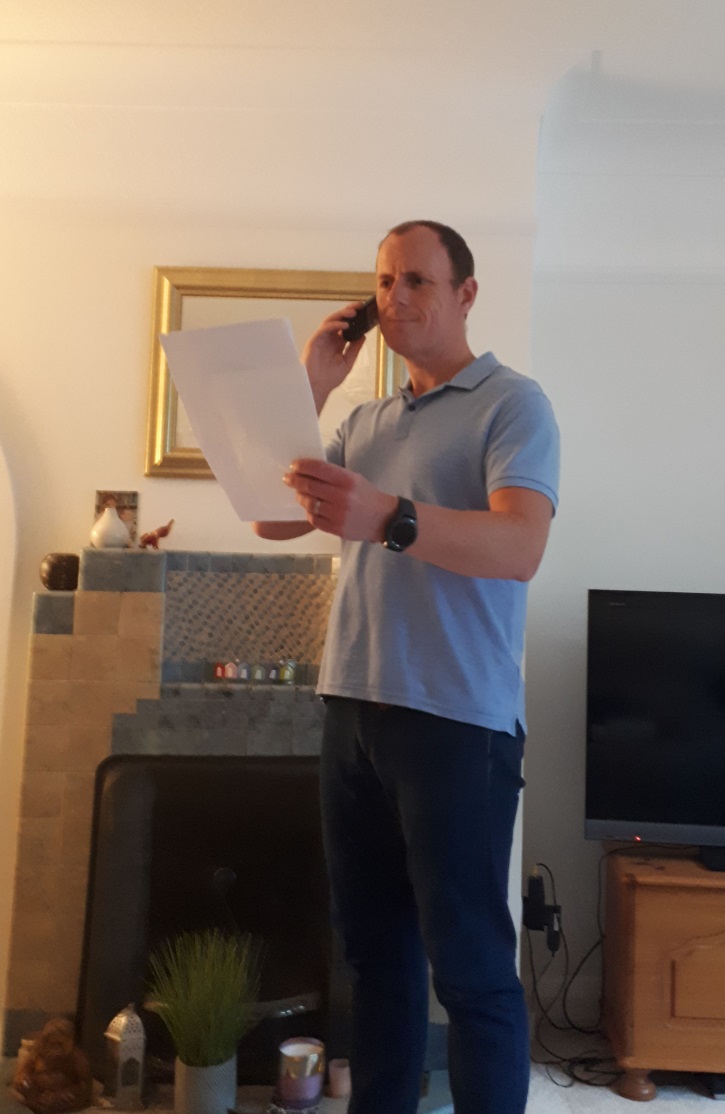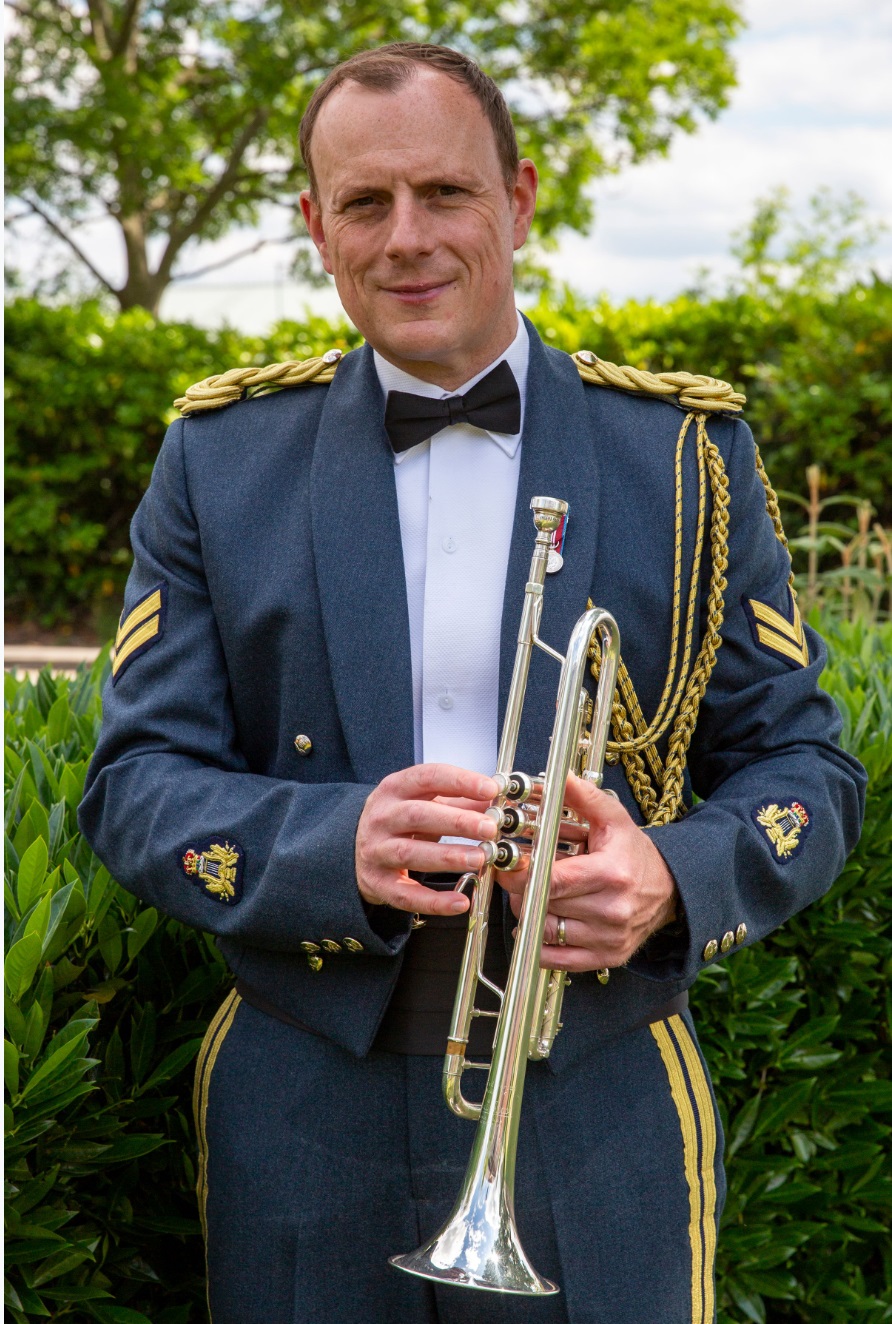A telephone befriending outreach service.

Throughout the Covid-19 crisis, personnel from Royal Air Force Music have been engaged in volunteer roles as telephone befrienders for the Royal Air Force Association’s (RAFA) Operation CONNECT.
Op-Connect is RAFA’s emergency relief programme which is dedicated to supporting the Royal Air Force family during these unprecedented times. The three emergency projects are: the Friendship Helpline, Telephone Befriending Outreach Service and Emergency Bag Drop.
When I first noticed the call for volunteers, it resonated with me that this extremely worthwhile cause was one that  I could fulfil whilst working from home and on standby for other duties. Other colleagues in RAF Music Services felt the same way and signed up to try and make a difference during the ongoing crisis. I volunteered my services in any capacity.
I could fulfil whilst working from home and on standby for other duties. Other colleagues in RAF Music Services felt the same way and signed up to try and make a difference during the ongoing crisis. I volunteered my services in any capacity.
It became apparent that there was much more of a demand for calling vulnerable elderly people with many having been isolated for over 2 months, rather than the emergency bag drop service.
Why was this? Well, everyone that I spoke to had had members of their family, neighbours or friends shopping for all of their essential items. There is a relief in knowing that throughout our communities in the UK, there are many citizens who have stepped up and helped the vulnerable throughout this crisis.
Prior to becoming an Outreach Volunteer Worker, there is some initial online training to complete through RAFA. There is a fair amount to absorb, but most information is very intuitive and self-explanatory. The training covers the safeguarding of vulnerable adults and looks at issues such as how to identify if a vulnerable person could be subject to forms of abuse.
Part of the telephone befriending service is being able to identify what is happening with a vulnerable person on the other end of the phone; checking on their welfare and wellbeing; recording information about them; taking notes and signposting should the need arise. After each call an activity log report is completed and sent to a RAFA Work Coordinator who is assigned to each volunteer. If there are any emergency response situations or issues, then the coordinator will begin to put in place the support network and necessary measures for the vulnerable person in whatever capacity.
During my first few calls, I prepared myself for what a potentially desperate state some people could be in. However, my first few calls were very straightforward and I found myself talking to a very diverse range of former service personnel including RAF police, MT drivers, engineers, pilots and storemen who were mostly quite comfortable at home with family. The conversation would often start with me being confronted with “Who is this?” and then “Thanks very much for calling and for the work you are doing, but I’m fine!”. Others would simply reply with; “Yes, I’m very well, nothing wrong here, so no need to call back, goodbye”.
On calling further beneficiaries, I encountered many more elderly vulnerable people suffering from underlying health conditions. All had been almost totally isolated since the lockdown began and they fell into the vulnerable/shielding category, so no going outside apart from those lucky enough to have a garden and certainly no visits from family or friends. It seems to have hit those hardest who either have no family, or who live quite a distance away from their families due to the travel restrictions. Many were not set up with the internet for video calls which only caused more loneliness.
 I recently spoke with two blind veterans and a widow, each of whom were living alone and very isolated. Although having support networks around them for shopping and further amenities, they were suffering from loneliness, anxiety and depression. Having someone on the other end of the phone to talk with and listen to their daily struggles during lockdown seemed to help alleviate some of the loneliness and improve their mental health. By remaining in contact with them every week or two, it has helped to lift their mood and reassured them that the RAF family are there for them and no one is alone during the crisis.
I recently spoke with two blind veterans and a widow, each of whom were living alone and very isolated. Although having support networks around them for shopping and further amenities, they were suffering from loneliness, anxiety and depression. Having someone on the other end of the phone to talk with and listen to their daily struggles during lockdown seemed to help alleviate some of the loneliness and improve their mental health. By remaining in contact with them every week or two, it has helped to lift their mood and reassured them that the RAF family are there for them and no one is alone during the crisis.
It has been a privilege to listen to their stories; their careers, achievements, commitment and bravery when in service. Although vulnerable now, they once led dynamic lives, experienced real hardship and faced dangers that few of us will ever experience.
Article by Corporal Ben Godfrey, Central Band of the Royal Air Force.
.jpg)
Please take a look at our Friends of RAF Music Scheme.









